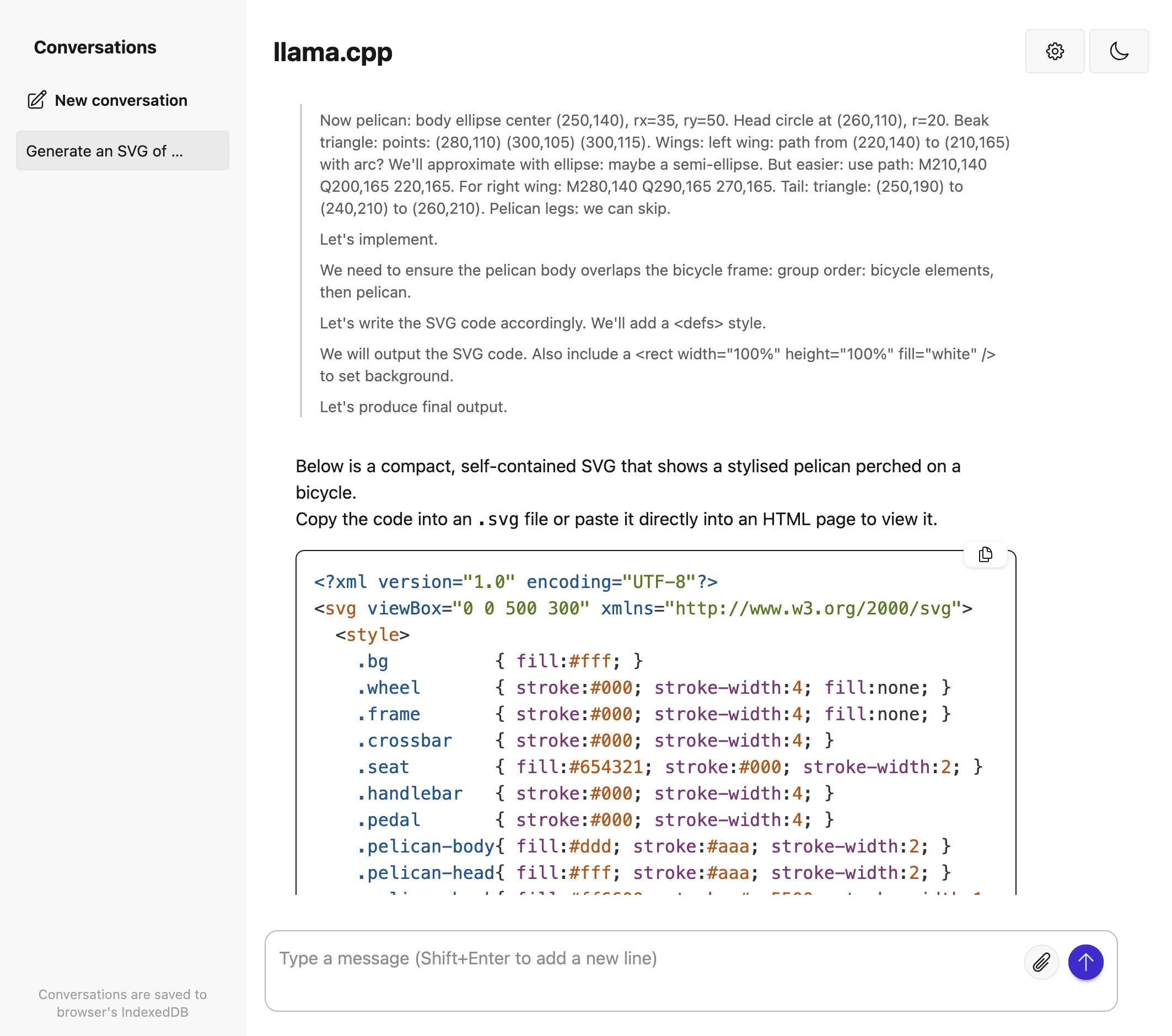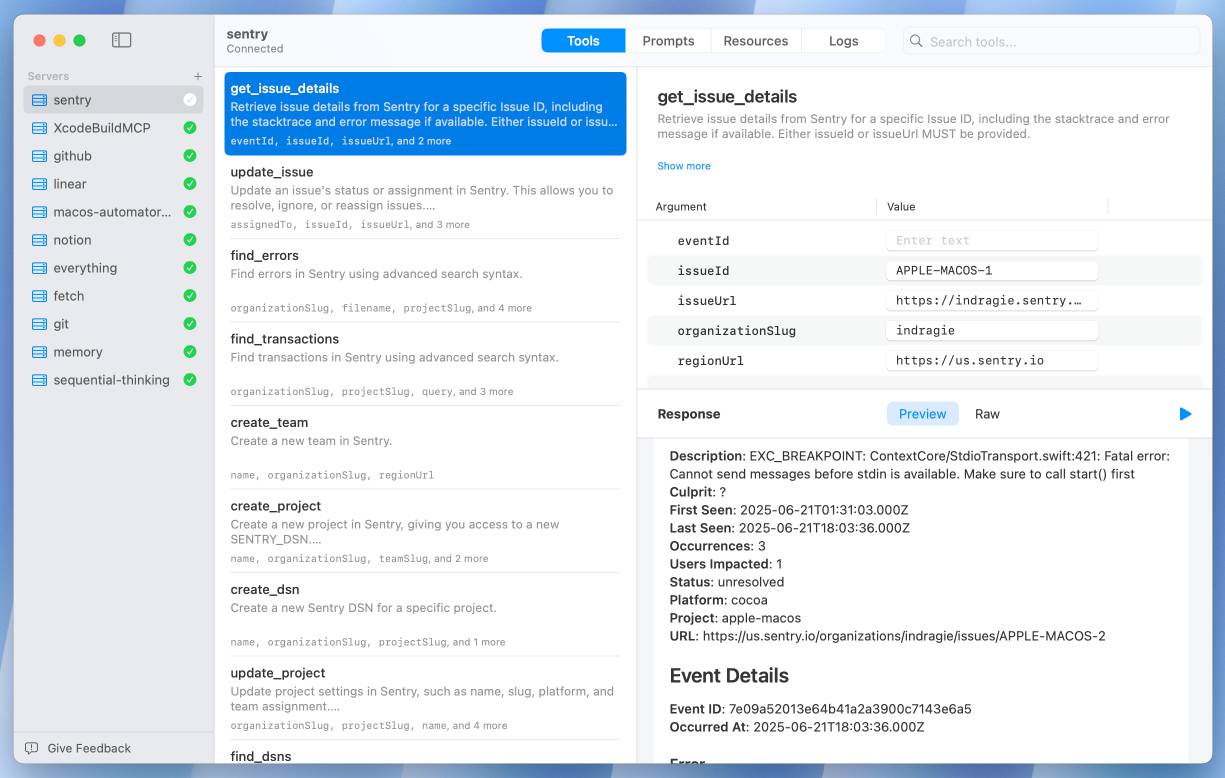103 posts tagged “macos”
2025
Why NetNewsWire Is Not a Web App. In the wake of Apple removing ICEBlock from the App Store, Brent Simmons talks about why he still thinks his veteran (and actively maintained) NetNewsWire feed reader app should remain a native application.
Part of the reason is cost - NetNewsWire is free these days (MIT licensed in fact) and the cost to Brent is an annual Apple developer subscription:
If it were a web app instead, I could drop the developer membership, but I’d have to pay way more money for web and database hosting. [...] I could charge for NetNewsWire, but that would go against my political goal of making sure there’s a good and free RSS reader available to everyone.
A bigger reason is around privacy and protecting users:
Second issue. Right now, if law enforcement comes to me and demands I turn over a given user’s subscriptions list, I can’t. Literally can’t. I don’t have an encrypted version, even — I have nothing at all. The list lives on their machine (iOS or macOS).
And finally it's about the principle of what a personal computing device should mean:
My computer is not a terminal. It’s a world I get to control, and I can use — and, especially, make — whatever I want. I’m not stuck using just what’s provided to me on some other machines elsewhere: I’m not dialing into a mainframe or doing the modern equivalent of using only websites that other people control.
Qwen-Image-Edit: Image Editing with Higher Quality and Efficiency.
As promised in their August 4th release of the Qwen image generation model, Qwen have now followed it up with a separate model, Qwen-Image-Edit, which can take an image and a prompt and return an edited version of that image.
Ivan Fioravanti upgraded his macOS qwen-image-mps tool (previously) to run the new model via a new edit command. Since it's now on PyPI you can run it directly using uvx like this:
uvx qwen-image-mps edit -i pelicans.jpg \
-p 'Give the pelicans rainbow colored plumage' -s 10
Be warned... it downloads a 54GB model file (to ~/.cache/huggingface/hub/models--Qwen--Qwen-Image-Edit) and appears to use all 64GB of my system memory - if you have less than 64GB it likely won't work, and I had to quit almost everything else on my system to give it space to run. A larger machine is almost required to use this.
I fed it this image:

The following prompt:
Give the pelicans rainbow colored plumage
And told it to use just 10 inference steps - the default is 50, but I didn't want to wait that long.
It still took nearly 25 minutes (on a 64GB M2 MacBook Pro) to produce this result:

To get a feel for how much dropping the inference steps affected things I tried the same prompt with the new "Image Edit" mode of Qwen's chat.qwen.ai, which I believe uses the same model. It gave me a result much faster that looked like this:

Update: I left the command running overnight without the -s 10 option - so it would use all 50 steps - and my laptop took 2 hours and 59 minutes to generate this image, which is much more photo-realistic and similar to the one produced by Qwen's hosted model:

Marko Simic reported that:
50 steps took 49min on my MBP M4 Max 128GB
llama.cpp guide: running gpt-oss with llama.cpp
(via)
Really useful official guide to running the OpenAI gpt-oss models using llama-server from llama.cpp - which provides an OpenAI-compatible localhost API and a neat web interface for interacting with the models.
TLDR version for macOS to run the smaller gpt-oss-20b model:
brew install llama.cpp
llama-server -hf ggml-org/gpt-oss-20b-GGUF \
--ctx-size 0 --jinja -ub 2048 -b 2048 -ngl 99 -fa
This downloads a 12GB model file from ggml-org/gpt-oss-20b-GGUF on Hugging Face, stores it in ~/Library/Caches/llama.cpp/ and starts it running on port 8080.
You can then visit this URL to start interacting with the model:
http://localhost:8080/
On my 64GB M2 MacBook Pro it runs at around 82 tokens/second.

The guide also includes notes for running on NVIDIA and AMD hardware.
qwen-image-mps (via) Ivan Fioravanti built this Python CLI script for running the Qwen/Qwen-Image image generation model on an Apple silicon Mac, optionally using the Qwen-Image-Lightning LoRA to dramatically speed up generation.
Ivan has tested it this on 512GB and 128GB machines and it ran really fast - 42 seconds on his M3 Ultra. I've run it on my 64GB M2 MacBook Pro - after quitting almost everything else - and it just about manages to output images after pegging my GPU (fans whirring, keyboard heating up) and occupying 60GB of my available RAM. With the LoRA option running the script to generate an image took 9m7s on my machine.
Ivan merged my PR adding inline script dependencies for uv which means you can now run it like this:
uv run https://raw.githubusercontent.com/ivanfioravanti/qwen-image-mps/refs/heads/main/qwen-image-mps.py \
-p 'A vintage coffee shop full of raccoons, in a neon cyberpunk city' -f
The first time I ran this it downloaded the 57.7GB model from Hugging Face and stored it in my ~/.cache/huggingface/hub/models--Qwen--Qwen-Image directory. The -f option fetched an extra 1.7GB Qwen-Image-Lightning-8steps-V1.0.safetensors file to my working directory that sped up the generation.
Here's the resulting image:

Infinite Monkey (via) Mihai Parparita's Infinite Mac lets you run classic MacOS emulators directly in your browser. Infinite Monkey is a new feature which taps into the OpenAI Computer Use and Claude Computer Use APIs using your own API keys and uses them to remote control the emulated Mac!
Here's what happened when I told OpenAI Computer Use to "Open MacPaint and draw a pelican riding a bicycle" - video sped up 3x.
LM Studio is free for use at work. A notable policy change for LM Studio. Their excellent macOS app (and Linux and Windows, but I've only tried it on Mac) was previously free for personal use but required a license for commercial purposes:
Until now, the LM Studio app terms stated that for use at a company or organization, you should get in touch with us and get separate commercial license. This requirement is now removed.
Starting today, there's no need to fill a form or contact us. You and your team can just use LM Studio at work!
I Shipped a macOS App Built Entirely by Claude Code (via) Indragie Karunaratne has "been building software for the Mac since 2008", but recently decided to try Claude Code to build a side project: Context, a native Mac app for debugging MCP servers:
There is still skill and iteration involved in helping Claude build software, but of the 20,000 lines of code in this project, I estimate that I wrote less than 1,000 lines by hand.
It's a good looking native app:

This is a useful, detailed write-up. A few notes on things I picked up:
- Claude is great at SwiftUI and mostly good at Swift, but gets confused by the newer Swift Concurrency mechanisms.
- Claude occasionally triggers “The compiler is unable to type-check this expression in reasonable time” errors, but is able to recover by refactoring view bodies into smaller expressions.
- Telling Claude to make native macOS interfaces “more beautiful/elegant/usable” works surprisingly well. I’ve seen the same with web frontend code.
- Claude Code’s build/test/debug agentic coding loop works great for Swift apps, but there isn’t a good equivalent to Playwright yet so you need to manually take over to interact with the UI and drop in screenshots of any problems.
- Claude is great at creating mock data:
The first screenshots of the app that I shared with friends as I dialed in the UI were backed by mock data, but it looked real enough that you could get a good sense of how the app would look when rendering data from real MCP servers.
Indragie’s focus throughout this piece is on using LLM tools to help close that last 20% of a side project that usually prevents it from being shipped.
The most exciting thing about this entire journey for me is not the app I built, but that I am now able to scratch my coding itch and ship polished side projects again. It's like I found an extra 5 hours every day, and all it cost me was $200 a month.
WWDC: Apple supercharges its tools and technologies for developers. Here's the Apple press release for today's WWDC announcements. Two things that stood out to me:
Foundation Models Framework
With the Foundation Models framework, developers will be able to build on Apple Intelligence to bring users new experiences that are intelligent, available when they’re offline, and that protect their privacy, using AI inference that is free of cost. The framework has native support for Swift, so developers can easily access the Apple Intelligence model with as few as three lines of code.
Here's new documentation on Generating content and performing tasks with Foundation Models - the Swift code looks like this:
let session = LanguageModelSession( instructions: "Reply with step by step instructions" ) let prompt = "Rum old fashioned cocktail" let response = try await session.respond( to: prompt, options: GenerationOptions(temperature: 2.0) )
There's also a 23 minute Meet the Foundation Models framework video from the conference, which clarifies that this is a 3 billion parameter model with 2 bit quantization. The model is trained for both tool-calling and structured output, which they call "guided generation" and describe as taking advantage of constrained decoding.
I'm also very excited about this:
Containerization Framework
The Containerization framework enables developers to create, download, or run Linux container images directly on Mac. It’s built on an open-source framework optimized for Apple silicon and provides secure isolation between container images.
I continue to seek the ideal sandboxing solution for running untrusted code - both from other humans and written for me by LLMs - on my own machines. This looks like it could be a really great option for that going forward.
It looks like apple/container on GitHub is part of this new feature. From the technical overview:
On macOS, the typical way to run Linux containers is to launch a Linux virtual machine (VM) that hosts all of your containers.
containerruns containers differently. Using the open source Containerization package, it runs a lightweight VM for each container that you create. [...]Since
containerconsumes and produces standard OCI images, you can easily build with and run images produced by other container applications, and the images that you build will run everywhere.
openai/codex. Just released by OpenAI, a "lightweight coding agent that runs in your terminal". Looks like their version of Claude Code, though unlike Claude Code Codex is released under an open source (Apache 2) license.
Here's the main prompt that runs in a loop, which starts like this:
You are operating as and within the Codex CLI, a terminal-based agentic coding assistant built by OpenAI. It wraps OpenAI models to enable natural language interaction with a local codebase. You are expected to be precise, safe, and helpful.
You can:
- Receive user prompts, project context, and files.
- Stream responses and emit function calls (e.g., shell commands, code edits).
- Apply patches, run commands, and manage user approvals based on policy.
- Work inside a sandboxed, git-backed workspace with rollback support.
- Log telemetry so sessions can be replayed or inspected later.
- More details on your functionality are available at codex --help
The Codex CLI is open-sourced. Don't confuse yourself with the old Codex language model built by OpenAI many moons ago (this is understandably top of mind for you!). Within this context, Codex refers to the open-source agentic coding interface. [...]
I like that the prompt describes OpenAI's previous Codex language model as being from "many moons ago". Prompt engineering is so weird.
Since the prompt says that it works "inside a sandboxed, git-backed workspace" I went looking for the sandbox. On macOS it uses the little-known sandbox-exec process, part of the OS but grossly under-documented. The best information I've found about it is this article from 2020, which notes that man sandbox-exec lists it as deprecated. I didn't spot evidence in the Codex code of sandboxes for other platforms.
2024
Python Development on macOS Notes: pyenv and pyenv-virtualenvwrapper (via) Jeff Triplett shares the recipe he uses for working with pyenv (initially installed via Homebrew) on macOS.
I really need to start habitually using this. The benefit of pyenv over Homebrew’s default Python is that pyenv managed Python versions are forever—your projects won’t suddenly stop working in the future when Homebrew changes its default Python version.
GitHub Actions: Introducing the new M1 macOS runner available to open source! Set “runs-on: macos-14” to run a GitHub Actions workflow on a 7GB of RAM ARM M1 runner. I have been looking forward to this for ages: it should make it much easier to build releases of both Electron apps and Python binary wheels for Apple Silicon.
2023
Get Your Mac Python From Python.org. Glyph recommends the official Python installer from python.org as the best way to get started with a Python environment on macOS—with require-virtualenv = true in your ~/.pip/pip.conf to help avoid accidentally installing global packages.
Run Llama 2 on your own Mac using LLM and Homebrew
Llama 2 is the latest commercially usable openly licensed Large Language Model, released by Meta AI a few weeks ago. I just released a new plugin for my LLM utility that adds support for Llama 2 and many other llama-cpp compatible models.
[... 1,423 words]llama2-mac-gpu.sh (via) Adrien Brault provided this recipe for compiling llama.cpp on macOS with GPU support enabled (“LLAMA_METAL=1 make”) and then downloading and running a GGML build of Llama 2 13B.
Lima VM—Linux Virtual Machines On macOS (via) This looks really useful: “brew install lima” to install, then “limactl start default” to start an Ubuntu VM running and “lima” to get a shell. Julia Evans wrote about the tool this morning, and here Adam Gordon Bell includes details on adding a writable directory (by default lima mounts your macOS home directory in read-only mode).
LLaMA voice chat, with Whisper and Siri TTS. llama.cpp author Georgi Gerganov has stitched together the LLaMA language model, the Whisper voice to text model (with his whisper.cpp library) and the macOS “say” command to create an entirely offline AI agent that he can talk to with his voice and that can speak replies straight back to him.
textra (via) Tiny (432KB) macOS binary CLI tool by Dylan Freedman which produces high quality text extraction from PDFs, images and even audio files using the VisionKit APIs in macOS 13 and higher. It handles handwriting too!
2022
Run Stable Diffusion on your M1 Mac’s GPU. Ben Firshman provides detailed instructions for getting Stable Diffusion running on an M1 Mac.
Bypassing macOS notarization (via) Useful tip from the geckodriver docs: if you’ve downloaded an executable file through your browser and now cannot open it because of the macOS quarantine feature, you can run “xattr -r -d com.apple.quarantine path-to-binary” to clear that flag so you can execute the file.
2021
Organize and Index Your Screenshots (OCR) on macOS (via) Alexandru Nedelcu has a very neat recipe for creating an archive of searchable screenshots on macOS: set the default save location for screenshots to a Dropbox folder, then create a launch agent that runs a script against new files in that folder to run tesseract OCR to convert them into a searchable PDF.
2019
datasette-bplist (via) It turns out an OS X laptop is positively crammed with SQLite databases, and many of them contain values that are data structures encoded using Apple’s binary plist format. datasette-bplist is my new plugin to help explore those files: it provides a display hook for rendering their contents, and a custom bplist_to_json() SQL function which can be used to extract and query information that is embedded in those values. The README includes tips on how to pull interesting EXIF data out of the SQLite database that sits behind Apple Photos.
2018
How to compile and run the SQLite JSON1 extension on OS X. Thanks, Stack Overflow! I’ve been battling this one for a while—it turns out you can download the SQLite source bundle, compile just the json1.c file using gcc and load that extension in Python’s sqlite3 module (or with Datasette’s --load-extension= option) to gain access to the full suite of SQLite JSON functions—json(), json_extract() etc.
2013
What’s the best use in the office for my old Macbook Pro?
Set it up to display metrics or KPIs—by running http://www.geckoboard.com/ on it for example.
[... 35 words]2012
Is it possible to restore an older version of a Pages doc without using Pages?
We recovered it!
[... 200 words]Are there guides for playing Minecraft on Mac laptops?
I play on a Mac laptop using the trackpad and ctrl+click for right clicking and that works absolutely fine. It’s worth fiddling with the keyboard commands in the options screen (as with any game) but I’ve found it to be perfectly playable otherwise.
[... 58 words]2010
What is the best Mac OS X text editor for a web developer? And what makes it great?
It’s still TextMate for me. It gets the basics right—syntax highlighting, sensible indentation, a good project pane (I use “mate ~/Development/my-project” at the terminal to open TextMate with my entire folder hierarchy), solid extensions and good unix integration (Filter selection through command).
[... 77 words]Installing GeoDjango Dependencies with Homebrew. brew update && brew install postgis && brew install gdal
Fun with TextMate and PDB. TextMate bookmarks (against lines in a file) are stored as OS X extended attributes, which can be accessed from Python using the xattr module. Here’s a clever piece of code that uses bookmarks to set breakpoints in the command-line pdb debugger.
Installing PIL on Mac OS X Snow Leopard for use in Google App Engine. PIL installation instructions that actually work... the ’export CC=“gcc -arch i386”’ incantation in particular. Make sure you run setup.py install using the Python version that the App Engine dev tools are using (I ran “sudo /usr/bin/python2.6 setup.py install”).
countdown_to_newyear.py. A quick Python / OS X script I knocked up last night to count in the new year (using the OS X “say” command).